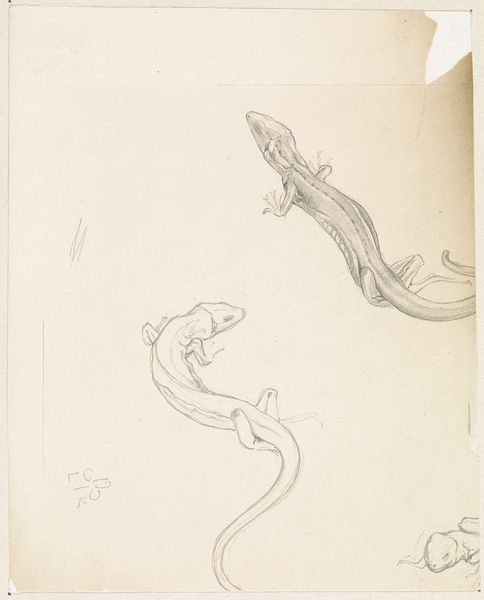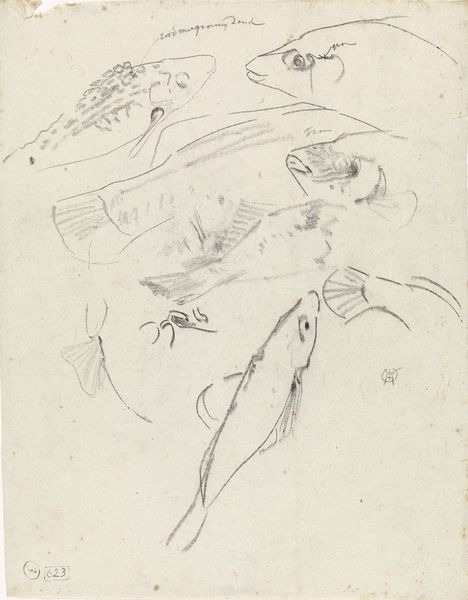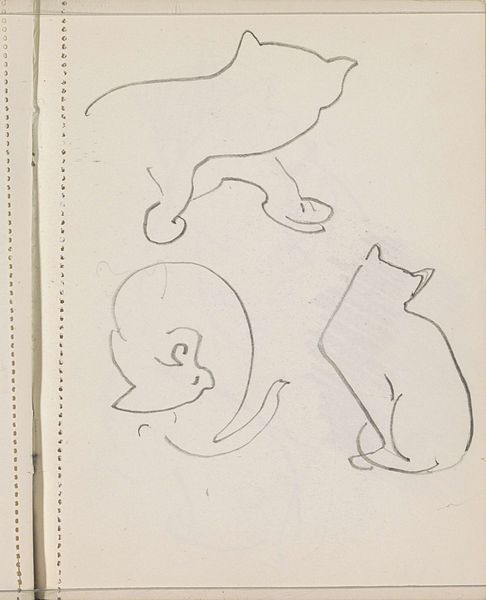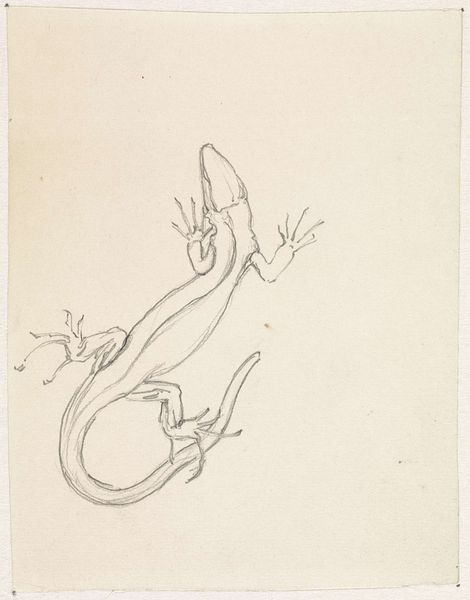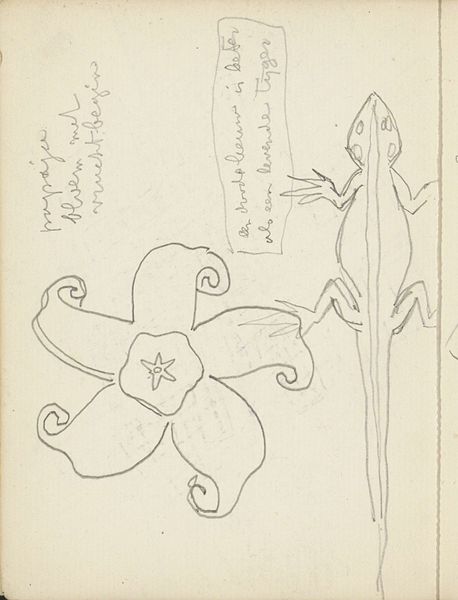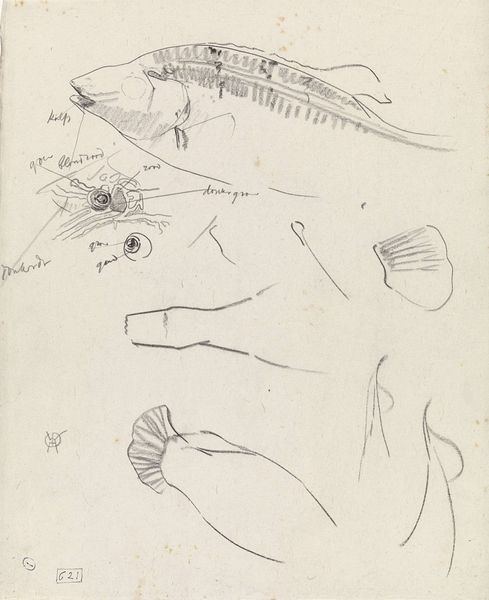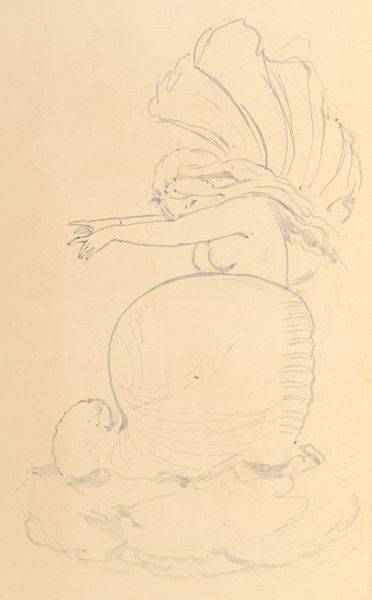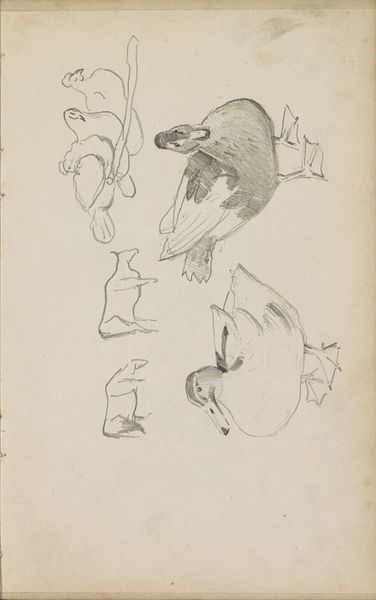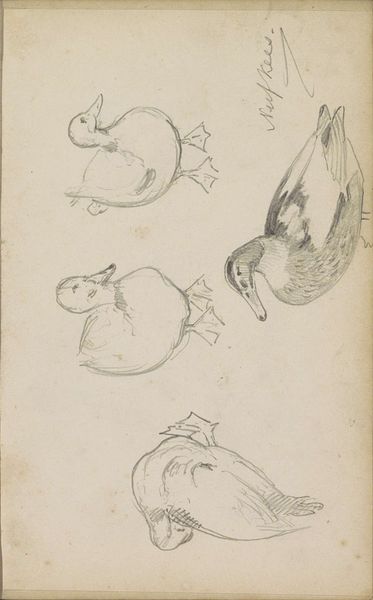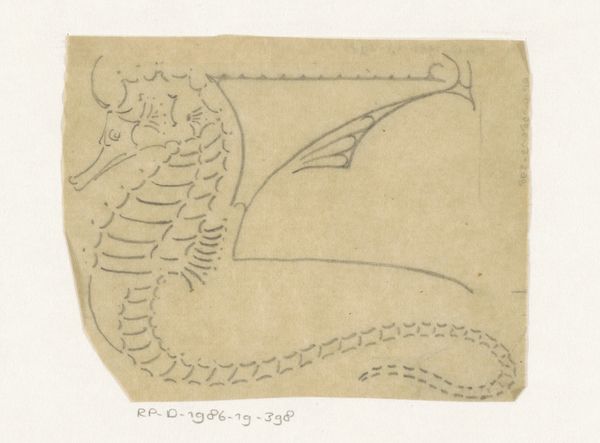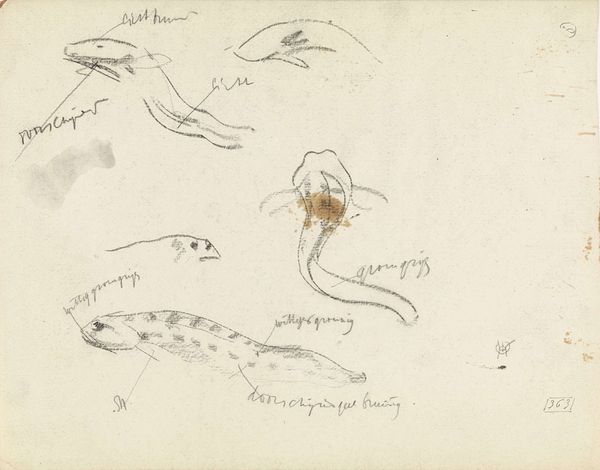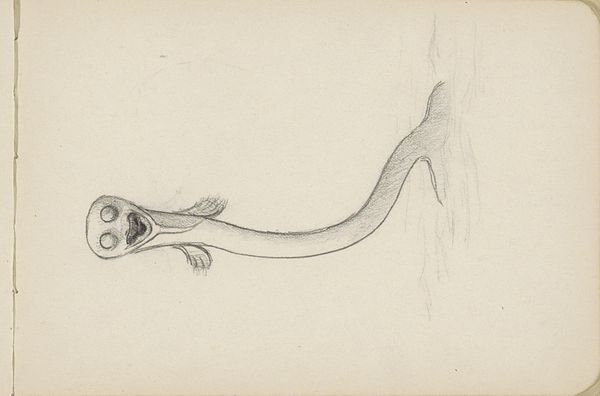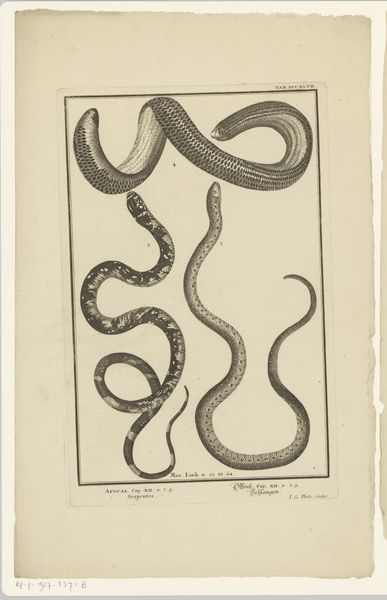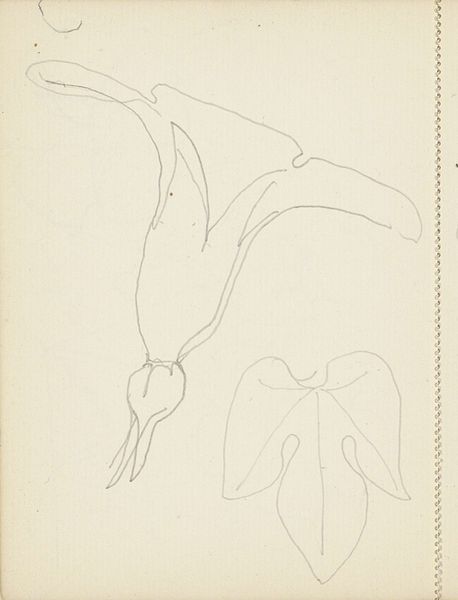
drawing, ink, pen
#
drawing
#
comic strip sketch
#
ink drawing
#
pen sketch
#
cartoon sketch
#
figuration
#
ink line art
#
personal sketchbook
#
ink
#
ink drawing experimentation
#
pen-ink sketch
#
line
#
sketchbook drawing
#
pen
#
sketchbook art
#
modernism
Copyright: Rijks Museum: Open Domain
Editor: So, this is "Slakken," a pen and ink drawing from around 1916 by Reijer Stolk, housed here at the Rijksmuseum. It’s essentially a page full of snail sketches, almost like a naturalist's notebook. They're cute, but something about their blank expressions is also slightly unsettling. What strikes you when you look at this drawing? Curator: The initial impression is deceptively simple, isn't it? These aren’t just sketches of snails; they’re vessels for something deeper. Think about the snail as a symbol throughout history. In many cultures, they represent patience, determination, the slow but steady progress. What could Stolk be hinting at here? Editor: Perhaps he's commenting on the slow pace of life or change? Or maybe poking fun at something? Curator: It's tempting to read them literally. But consider the period. 1916 was a time of immense upheaval. Could these snails, in their quiet, persistent movement, represent a subtle commentary on the resilience of life amidst chaos? Or perhaps a yearning for a slower, more deliberate existence as a form of personal psychology for the artist during the tumultous environment? Editor: I never thought about them that way, I just saw some doodles. That's quite profound considering they’re just snails! The simple, almost childlike rendering adds another layer. Curator: Exactly! The simplicity enhances the universality. Stolk removes the grandeur, focusing on these humble creatures as reflections of our own persistent journeys, our own internal landscapes. Even the spiraling shell… what could that evoke? Editor: Growth, maybe? Or a journey inward? It definitely feels like there’s more here than meets the eye. Curator: Precisely. They echo with symbolic weight, inviting introspection on perseverance, memory, and continuity in a world marked by fleeting and often destructive changes. What do you think you will remember from them? Editor: To look beyond the surface, I think. And maybe to embrace the slow pace of things sometimes!
Comments
No comments
Be the first to comment and join the conversation on the ultimate creative platform.
